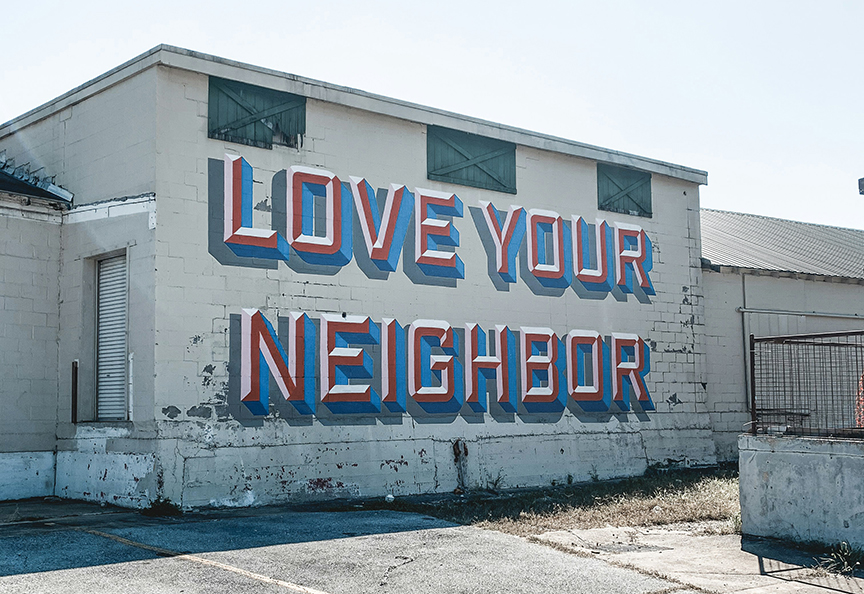by: Rev. Dr. Anna Hall
You see the headlines almost daily.
The fastest-growing major religious category is “Unaffiliated.” The latest studies from 2023 show 26% of Americans claiming this identity. Almost 1 in 5 Americans left their religious tradition to join this group. White mainline/non-evangelical Protestants lose more members than they replace every year. The top reason people cite for disaffiliation is that they no longer believe 67%). After that, the reasons cited include negative teachings on the LGBTQ community (47%) and clergy sexual abuse scandals (31%).
Even among church-goers, attendance is down, with only 24% of Americans attending once a week or more, down from 31% in 2013.
For those of us who love our churches, these statistics can feel overwhelming. Is there any hope?
There may not be much hope in getting lots of new people to buy into our existing ways of doing church. It is healthy to admit that, and take the time to grieve the future of church we may have envisioned.
Once we take the time to grieve and lament, there are points of hope to be found.
Those who are not a part of churches may consider themselves spiritual or religious. Research in 2023 found that 64% of American adults said yes when asked, “Do you consider yourself spiritual?” 53% said yes when asked, “Do you consider yourself religious?”

In fact, 41% of US adults say they have grown more spiritual over their lifetime, and 24% say they have grown more religious.
We must ask: What does the church have to offer people who are spiritual, maybe even growing spiritually, that are not a part of congregations?
Additional research suggests that many of the group who identify as “nones,” or those who choose “none of the above” as their religious identity in fact believe in a higher power and believe religion does some good. The majority question a lot of religious teachings, and about half don’t like religious organizations, with 30% having some bad experiences with religious people. They report doing things to connect with something bigger than themselves, like centering practices, meditation, exercise/yoga, and/or time in nature.
Again I ask: What does your church have to offer these folks? Put another way: How can you love these neighbors?
The answer to this question will never be to keep doing what you are doing and wait for them to walk through the doors of your church and join a committee so that your church can survive.
The real answers, however, will be as varied as congregations. One congregation creates a space for nurturing and providing affordable space to artists. Another forms a community center to help lonely neighbors connect over book clubs and classes. A third sponsors a Death Cafe discussion group on death and dying that is held at a coffee shop down the street. Yet another sponsors a community garden and outdoor group adventures for the neighborhood. One more builds affordable housing for seniors on their property.
None of these require or expect participants to “join the church.” All of these meet people where they are, spiritually and otherwise.
These are practices of loving people with no agenda that they will save your church. Jesus did not say to love your neighbor only in ways that preserve the institutional church. Instead, we can become living statements of faith by spending the church’s time, money, and facilities loving neighbors. We can commit to this radical love even if the end balance of this work is that all the money is spent, or that the church no longer looks like a traditional congregation.
And when our neighbors ask why we do these things, we can simply say:
We believe God calls us, and Jesus teaches us, to love our neighbors.
Loving your unaffiliated neighbor is God work. Are you ready to get started?
If you would like to talk about how we at Convergence can help your congregation love your neighbors, simply email me or Gregg Carlson to get the conversation started.
Sources:
https://spectrumlocalnews.com/nc/charlotte/news/2024/04/29/avery-county-community-garden
https://sfstandard.com/2023/03/15/bay-area-death-cafe-hopes-to-normalize-dying/


Comments
Hmmmm….. First: Let it be noted that participation in organized religion is increasing in much of the world. The discussion about “the decline of organized religion” is (mostly) a discussion for Europe and North America,
Second: It’s significant, also, that most Americans still consider themselves to be “spiritual” or involved with a Higher Power. Militant atheism hasn’t triumphed in most places. Instead, many folks are moving away from organized religion. And they’re also moving away from other communal activities. Participation in political parties, lodge meetings, labor unions, bowling leagues, and neighborhood associations has also declined. Several explanations involved. One explanation: Women who were once “church ladies” now have lots of new possibilities and lots of burdens. Working in the gig economy while trying to function as a single parent is a challenge.
Therapy is the new religion for many. It can be easily personalized. Blue Cross may be willing to pay.
“Spirituality” will always be present in some form. Individuals will worship this and they’ll be excited about that and they’ll make the necessary sacrifices and they’ll have emotional experiences. I knew a guy who said that he “worshipped” his motorcycle. I know guys who get misty-eyed when discussing the Marine Corps.
Organized religion as explained by mainstream theologians? That’s a different matter.
All of the ancient civilizations had some form of organized religion. Some of the old religions lasted for thousands of years and a few still exist. The ancient religions of India, China, and Japan come to mind. For much of the Western world, the Abrahamic religions may be much reduced by the end of the twenty-first century.